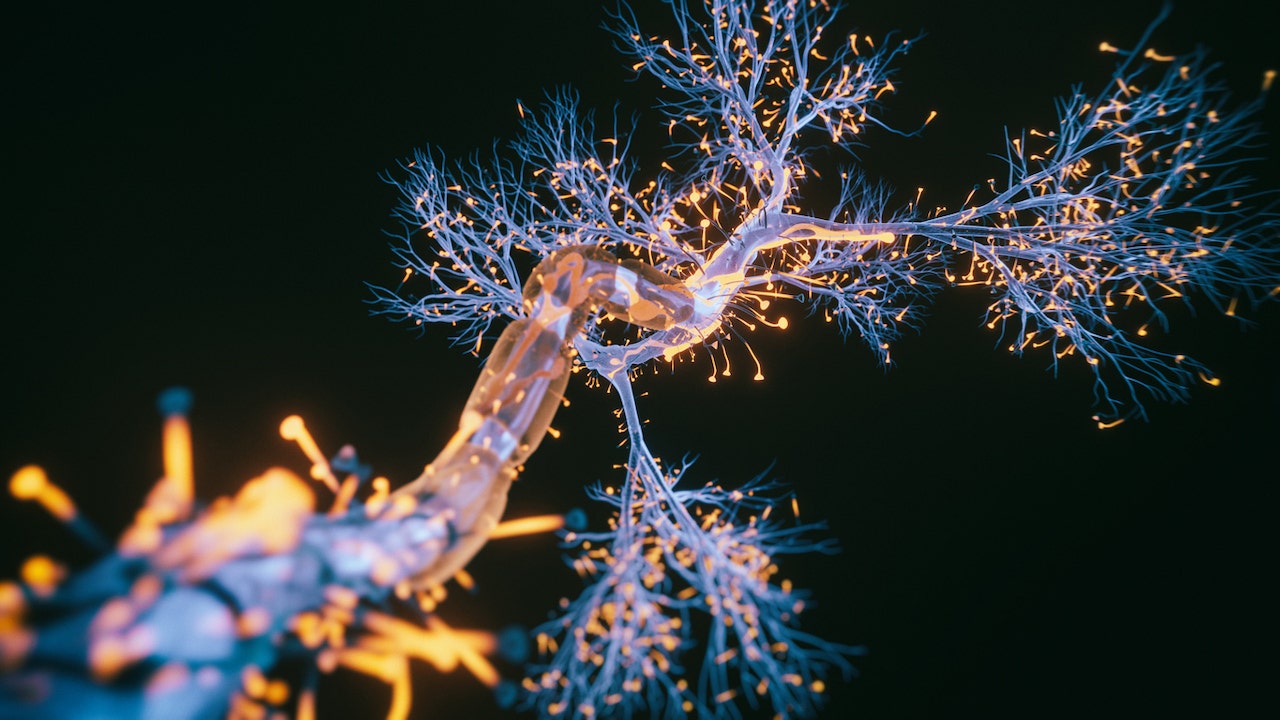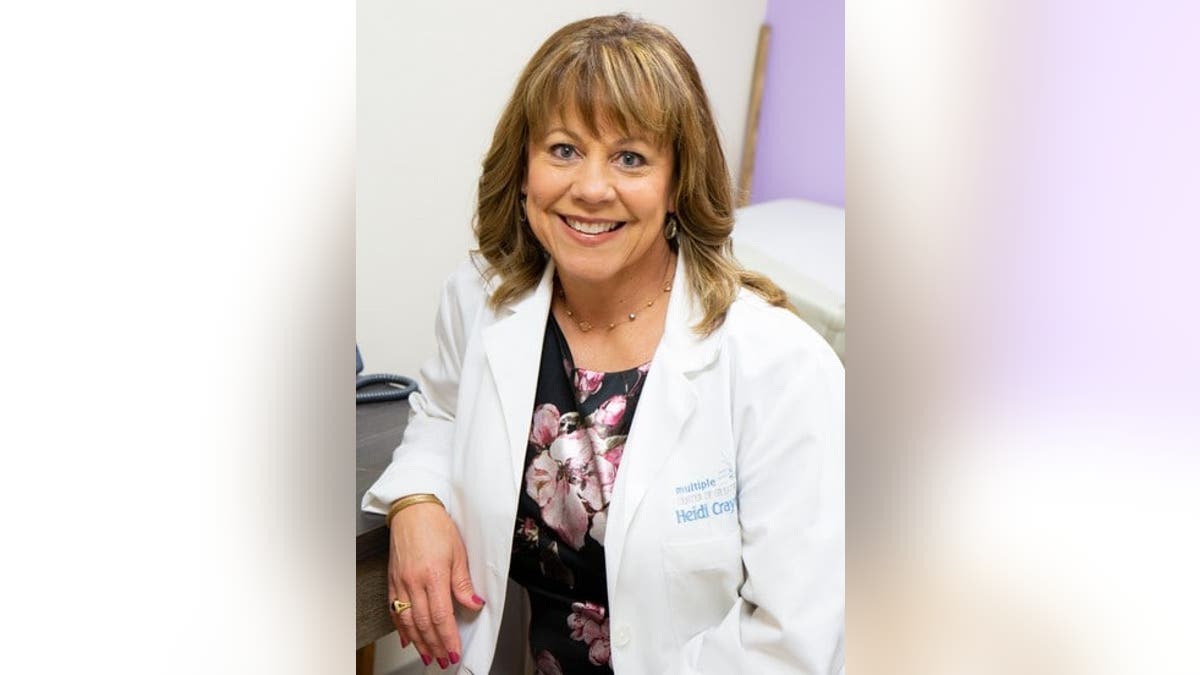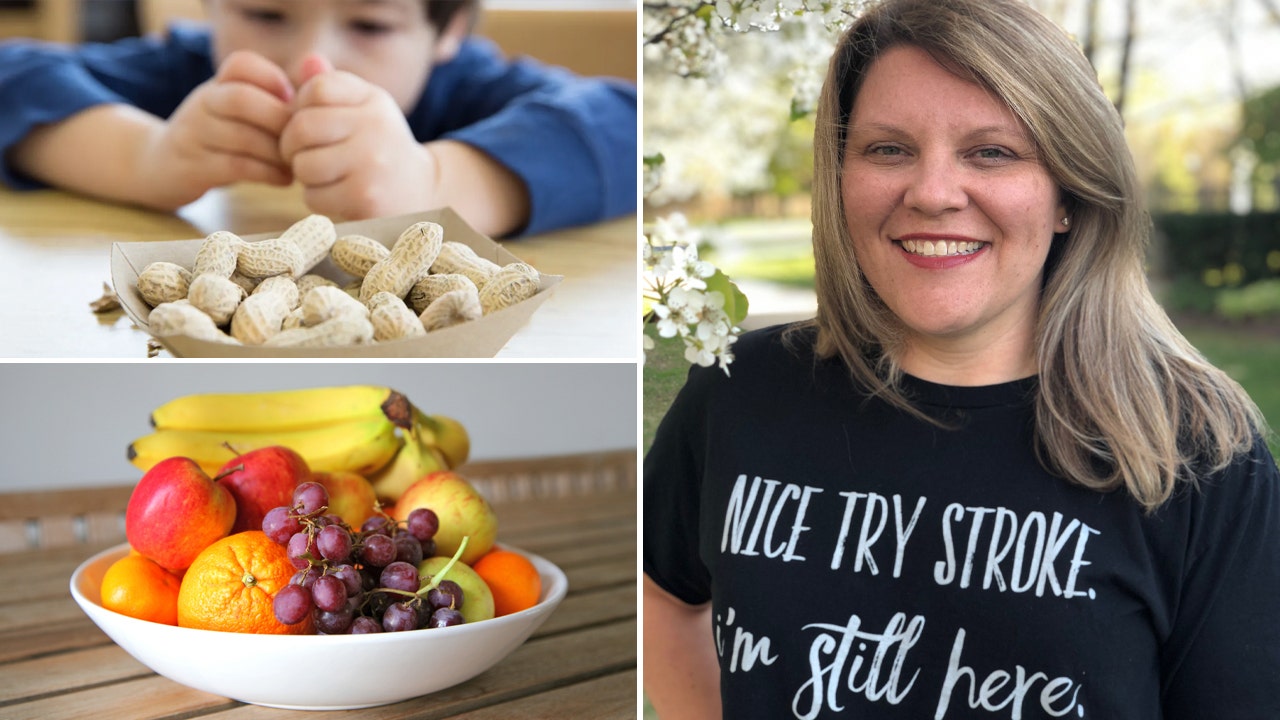Health
Dementia-depression connection: Early sadness can lead to later cognitive issues, study finds

This story discusses suicide. If you or someone you know is having thoughts of suicide, please contact the Suicide & Crisis Lifeline at 988 or 1-800-273-TALK (8255).
People who suffer from depression are more than twice as likely to develop dementia later in life, a new study from Penn Medicine found. It was published in JAMA Neurology.
The link was found for both young and middle-aged adults, but the risk was higher for men.
The study was a collaboration between researchers at the Perelman School of Medicine at the University of Pennsylvania and Aarhus University in Denmark. It followed 1.4 million Danish citizens over nearly four decades, according to a press release announcing the findings.
NEW DEMENTIA DRUG ‘HAS GIVEN ME HOPE’: ALZHEIMER’S PATIENTS REVEAL THEIR STORIES
Overall, those who were diagnosed previously with depression were 2.41 times more likely to receive a dementia diagnosis eventually, the release stated.
“While depression diagnosed later in life is generally thought to be an early symptom of dementia, our results suggest that a depression diagnosis at any point in adulthood increases the risk of dementia later on,” first author Holly Elser, M.D., PhD, a neurology resident at Penn, said in the release.
People who suffer from depression are more than twice as likely to develop dementia later in life, a new study from Penn Medicine found. (iStock)
“Previous studies with smaller sample sizes and shorter follow-up times have consistently illustrated the link between dementia and depression diagnosed later in life, but with our long-term analysis, we were able to precisely estimate the association between dementia and depression over an individual’s life span,” she explained.
The correlation existed regardless of the age at which the depression was diagnosed.
Those hospitalized for depression multiple times had a stronger risk of dementia later in life.
SPIKE IN TEEN DEPRESSION ALIGNS WITH RISE OF SOCIAL MEDIA, NEW POLL SUGGESTS: ‘IT’S NOT GOING ANYWHERE’
There didn’t seem to be any increased risk among those who were prescribed antidepressants within six months of being diagnosed with depression, the study found.
Potential reasons for the link
Dr. Rehan Aziz, geriatric psychiatrist at Jersey Shore University Medical Center and associate professor of psychiatry and neurology at the Hackensack Meridian School of Medicine in New Jersey, was not part of the study but shared his thoughts on the findings.

“Depression and dementia may share similar genetics and cause similar brain changes,” a psychiatrist told Fox News Digital. (iStock)
“The study links depression and dementia — but it does not explain why the risk exists,” he told Fox News Digital.
The doctor said he has several theories, however.
“One is that depression and dementia may share similar genetics and cause similar brain changes,” he said.
BE WELL: STOP ‘SUMMER SADNESS’ WITH THESE EXPERT TIPS
“For example, we know that depression can cause shrinkage of the hippocampus, an area of the brain that is important for recent memories.”
“We know that depression can cause shrinkage of the hippocampus, an area of the brain that is important for recent memories.”
“While the shrinkage is reversible with [the] treatment of depression, it is probable that it has later-life effects,” he hypothesized.
Depression can also create a state of inflammation in the brain and impact other brain chemicals, Aziz noted, which could also trigger later-life memory problems.
Treatment and risk reduction
Although the study findings stated that the prescription of antidepressants didn’t seem to impact the risk of dementia, Aziz said more research is needed to make a definitive call.

It is estimated that some 6.2 million Americans age 65 and older are living with Alzheimer’s disease, the most common type of dementia, per the Alzheimer’s Association. (iStock)
“For example, the study did not comment on which antidepressants were used, the dosages ordered, duration of treatment or the effectiveness of the treatment,” he said.
“It’s also not clear if other depression treatments were used.”
Mental health conditions should “treat depression aggressively,” Aziz said, with a combination of medications, psychotherapy and lifestyle interventions such as diet and exercise.
“Sadness and depression are not the same thing.”
“Clinicians should also discuss the possible linkage between depression and dementia and emphasize to patients the importance of adhering to depression treatment,” he added.
The doctor also pointed out that “sadness and depression are not the same thing.”
“Everybody experiences sadness from time to time, and that should not increase the risk of dementia,” he said.
CLICK HERE TO SIGN UP FOR OUR HEALTH NEWSLETTER
“Clinical depression stops one’s life. It can impair functioning and prevent people from working, maintaining relationships, experiencing joy and taking care of themselves.”
In extreme situations, people with depression may even have thoughts about not wanting to live anymore, he warned.
“It is important that anybody experiencing depression seek prompt medical evaluation so they can start treatment,” Aziz said.

People previously diagnosed with depression were 2.41 times more likely to receive a dementia diagnosis later in life. (iStock)
Some 17.3 million people age 18 and older in the U.S. — about 7.1% of the adult population — suffer from major depressive disorder, according to the Depression and Bipolar Support Alliance.
It is estimated that around 6.2 million Americans age 65 and older are living with Alzheimer’s disease, the most common type of dementia, per the Alzheimer’s Association.
More research is needed, researchers say
The researchers acknowledged the limitations of the paper and the need for further research of the link between the two mental disorders.
“It is still unclear what about depression increases the risk of a dementia diagnosis,” said Elser in the press release.
“And I hope to see further research that evaluates whether the link between depression and dementia may be biological, a result of behaviors associated with depression, like social isolation and other changes in key health behaviors or some combination of these mechanisms,” he said.

Health
The Mediterranean Diet: A Plan for a Lifetime | Woman's World

Sign Up
Create a free account to access exclusive content, play games, solve puzzles, test your pop-culture knowledge and receive special offers.
Already have an account? Login
Forgot your password?
Get back to the Sign In
Use left and right arrow keys to navigate between menu items.
Use escape to exit the menu.
Health
First person with MS to play in the NBA shares his inspiring message: 'Make the most of it'

Multiple sclerosis is a life-changing diagnosis for one million people who are affected in the U.S. — but for a professional athlete, its physical limitations can seem particularly challenging.
Chris Wright, 34, the first person with MS to play in the National Basketball Association (NBA), has been living with the disorder since his 2012 diagnosis.
For World MS Day on May 30, Wright and his neurologist, Dr. Heidi Crayton, joined Fox News Digital in an on-camera interview from Washington, D.C., to discuss how he’s come to terms with his MS and to share words of wisdom for others facing the diagnosis. (See the video at the top of this article.)
DISRUPTED SLEEP, PLUS NIGHTMARES COULD BE LINKED TO AUTOIMMUNE DISEASES, EXPERTS SAY
Wright first experienced symptoms in 2012, he said, when he noticed tingling in his right foot while warming up for an overseas basketball game in Turkey.
“As I was shooting, I felt a tingling sensation in my right hand that eventually spread throughout my entire body within a matter of a minute,” he told Fox News Digital.
Chris Wright, 34, the first person with MS to play in the NBA, has been living with the disorder since his 2012 diagnosis. (Getty Images/Chris Wright)
His coaches sent him to a doctor, who told him to take the day off.
“The next morning I woke up, and I couldn’t walk. I couldn’t stand up. I couldn’t really use my limbs,” he recalled.
‘LIQUID GOLD’ COULD BRING NEW HOPE TO MULTIPLE SCLEROSIS PATIENTS, STUDY SUGGESTS: ‘PROFOUND BENEFIT’
Wright returned to the doctor, this time in a wheelchair.
“They sent me to a specialist, where I was quickly diagnosed with multiple sclerosis.”
MS is a chronic disease of the central nervous system that can affect movement, vision, speech and other functions.
After going through several other doctors, Wright found Dr. Crayton, a board-certified neurologist who practices at the Multiple Sclerosis Center of Greater Washington.

Chris Wright of Bertram Derthona Basket Tortona in action during the LBA Lega Basket Series A Playoffs Semi-Final Game 3 match between Bertram Derthona Basket Tortona and Virtus Segafredo Bologna PalaEnergica Paolo Ferraris on May 31, 2022, in Casale Monferrato, Italy. (Getty Images)
“What led me to her was her confidence and her ability to simplify what it meant to have MS and to make it manageable for me. [She] helped me understand that I could still go on with my career and my life in a way that I wanted to,” he said.
Crayton noted that the patient-doctor relationship is a “marathon, not a sprint.”
She told Fox News Digital, “It’s really important to find a doctor they can trust, who they can communicate with, who they can partner with to make decisions.”
TEENAGER IS PRIMARY CAREGIVER FOR NEW MEXICO MOM WITH MS: ‘WE’RE A TEAM’
“You need a team of people who support you, love you and accept you.”
Less than a year after his diagnosis, Wright became the first person with MS to play in the NBA when he signed with the Dallas Mavericks.
“MS impacted my career tremendously, because there was nobody before me,” Wright told Fox News Digital.
“You need a team of people who support you, love you and accept you.”
“I had NBA offers that were retracted because of the possibility of me having medical conditions and just being in uncharted territory — but I kept working and overcame it.”
BREAKTHROUGH FOR MULTIPLE SCLEROSIS SUFFERERS MAY INVOLVE HELPFUL HORMONE: ‘PATIENTS SHOULD REMAIN OPTIMISTIC’
Wright, a husband and father of three, is no longer playing basketball these days, but he is feeling healthy and enjoying life, he said.
“Living with MS, it looks good, it feels good — I feel great,” he said.
“I try to stay active. I try to stay healthy. I try to stay moving. And I’ve been able to keep myself healthy and continue to be a father and live my life the way I want to live.”
‘Badge of honor’
For all those facing a new diagnosis, Wright encouraged seeking out resources from people who have “walked these halls” before.
“There are people who understand what you’re going through, and it’s important to hear other stories and get a foundational knowledge of what your life will look like moving forward.”

After going through several other doctors, Wright found Dr. Crayton, pictured here, a board-certified neurologist who practices at the Multiple Sclerosis Center of Greater Washington. (Dr. Heidi Crayton)
Wright is involved with Express4MS, a campaign that encourages people with MS to express themselves, share their stories and discuss treatment options with their doctors.
“It’s just something you can put in your toolbox to find information, inspiration and motivation to live every day in a positive way,” Wright said.
“Walk with pride, and know that you’re going to be OK.”
“I would say to people: Stay with it, go through those tough times, figure out what works for you,” he said.
“Figure out how you can be successful at whatever it is you do.”
CLICK HERE TO SIGN UP FOR OUR HEALTH NEWSLETTER
Wright urges MS patients to look at the disease not as a hindrance, but as a “badge of honor.”
He said, “Walk with pride, and know that you’re going to be OK.”
Clayton advises her MS patients to “treat your body like a temple.”

Chris Wright of Bertram Derthona Basket Tortona in action during the LBA Lega Basket Serie A Playoffs Semi-Final Game 3 match between Bertram Derthona Basket Tortona and Virtus Segafredo Bologna PalaEnergica Paolo Ferraris on May 31, 2022, in Casale Monferrato, Italy. (Getty Images)
“It will pay you back in spades if you can invest in your health — eat well, exercise, sleep,” she said.
While people with MS will always have bad days, Wright is focused on maintaining a positive outlook.
“As long as you’re above ground, you have an opportunity to make the most of it,” he said.
“Every action has an equal and opposite reaction — so whatever you put out there is the energy that’s going to come back.”
For more Health articles, visit www.foxnews.com/health.
Health
Early stroke symptoms, plus allergy prevention and foods that promote sleep

EVERY SECOND COUNTS – Jenna Gibson was just 39 when a stroke nearly killed her. Here, she shares her story to help raise awareness among young women. Continue reading…
‘PUBLIC HEALTH CONCERN’ – ADHD now affects 1 in 9 kids in the U.S., a new report reveals. Mental health experts discuss reasons for the spike and how families can help. Continue reading…
EAT WELL, SLEEP WELL – Want a better night’s sleep? Researchers suggest eating more of these types of foods. Continue reading…
Consuming more fruits and veggies helps to support the right amount of sleep, a new study has found. (iStock)
SOMETHING FISHY? – A certain supplement has been linked to an increased risk of cardiovascular events for some people. Researchers and doctors weigh in. Continue reading…
HELP FOR VETS – The U.S. Department of Veterans Affairs is bringing mobile medical care to homeless vets. Patients share how the initiative is changing their lives for the better. Continue reading…
RISK REDUCTION – Feeding peanut butter to babies — starting during infancy and continuing until age 5 — has been shown effective in reducing allergies into adolescence. Continue reading…

Feeding peanut butter to babies has shown to be effective in reducing allergies into adolescence, according to a new study. (iStock)
‘HUGE STIGMA’ – For World Schizophrenia Day, a mental health expert debunks some of the most common myths surrounding the disorder. Continue reading…
ILL-EQUIPPED – Half of American adults don’t think they can help in a medical crisis, a new poll reveals. Continue reading…
EYE OPENER – Several nurses share what they wish they’d known before entering the profession. Continue reading…

Left to right, Karie Ryan, Michele Acito, Katelynn Blackburn and Lisbeth Votruba shared insights into the nursing profession with Fox News Digital. Two other nurses shared thoughts as well. (iStock/Karie Ryan/Michele Acito/Katelynn Blackburn/Lisbeth Votruba)
FOLLOW FOX NEWS ON SOCIAL MEDIA
YouTube
SIGN UP FOR OUR NEWSLETTERS
Fox News First
Fox News Opinion
Fox News Lifestyle
Fox News Health
Fox News Autos
Fox News Entertainment (FOX411)
DOWNLOAD OUR APPS
Fox News
Fox Business
Fox Weather
Fox Sports
Tubi
WATCH FOX NEWS ONLINE
Fox News Go
STREAM FOX NATION
Fox Nation
-

 Culture1 week ago
Culture1 week agoFrom Dairy Daddies to Trash Pandas: How branding creates fans for lower-league baseball teams
-

 News1 week ago
News1 week agoRed Lobster files for bankruptcy after missteps including all-you-can-eat shrimp
-

 News1 week ago
News1 week agoThe states where abortion is on the ballot in November : Consider This from NPR
-

 Politics1 week ago
Politics1 week agoMichael Cohen swore he had nothing derogatory on Trump, his ex-lawyer says – another lie – as testimony ends
-

 Politics1 week ago
Politics1 week agoAnti-Israel agitators interrupt Blinken Senate testimony, hauled out by Capitol police
-
News1 week ago
Trump's social media account shares a campaign video with a headline about a 'unified Reich'
-

 News1 week ago
News1 week agoRead Prosecutors’ Filing on Mar-a-Lago Evidence in Trump Documents Case
-

 Science1 week ago
Science1 week agoPregnant? Researchers want you to know something about fluoride

/cdn.vox-cdn.com/uploads/chorus_asset/file/23986616/acastro_STK097_02.jpg)










